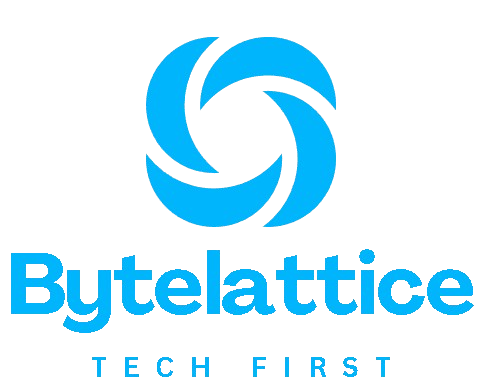
Launching a startup in today’s digital landscape means making smart, scalable decisions from day one. One of the most crucial choices is selecting the right cloud computing platform. The Best Cloud Computing Platforms don’t just offer storage—they provide speed, scalability, security, and the flexibility startups need to survive and grow in competitive markets.
I’ve spent years working with early-stage startups, helping them find the right tech stacks that match their goals and budgets. This post is motivated by countless late-night discussions with founders struggling to pick the right cloud partner. I’ve seen what works and what doesn’t.
This article will walk you through everything you need to know to confidently choose the Best Cloud Computing Platforms for your startup. It goes deep into features, pricing, use cases, and even real-world case studies so that you get a complete picture, not just surface-level advice.
1. What is Cloud Computing and Why is it Essential for Startups?
Cloud computing is the delivery of computing services—like storage, servers, databases, networking, software—over the internet. Instead of buying and maintaining physical data centers and servers, startups can rent what they need on demand.
For startups, the benefits of cloud computing are massive:
- Cost efficiency: No need for expensive upfront hardware.
- Scalability: Start small and expand resources as your business grows.
- Speed: Launch your app, website, or service faster.
- Accessibility: Work from anywhere, anytime.
Most importantly, the Best Cloud Computing Platforms help you focus on building your product, not maintaining infrastructure. They let you compete with larger players without breaking the bank.
Pro Tip: Look for platforms that offer startup credits—many give $1,000 to $100,000 in free credits for early-stage companies.
2. How to Choose the Right Cloud Computing Platform for Your Startup
Picking the right platform depends on your startup’s specific needs, but here are the key factors to consider:
- Use Case: Are you building a web app, mobile app, SaaS, or an AI product?
- Tech Stack: Choose a platform compatible with your programming language and tools.
- Ease of Use: Some platforms require more DevOps knowledge than others.
- Pricing Flexibility: Check for pay-as-you-go or reserved instances.
- Startup Programs: See if they offer free credits, mentorship, or cloud architecture help.
- Compliance & Security: Make sure they meet regulatory standards if you’re in fintech, health, or legal sectors.
Here’s a quick comparison table:
| Feature | AWS | Google Cloud | Azure | DigitalOcean | Heroku |
|---|---|---|---|---|---|
| Startup Credits | Yes | Yes | Yes | Yes | No |
| Easy for Beginners | Medium | Medium | Medium | Easy | Very Easy |
| AI/ML Capabilities | Strong | Strong | Strong | Limited | Limited |
| DevOps Control | High | High | High | Medium | Low |
| Best For | Scalable web apps | Big data & AI | Enterprise integration | Simple web services | MVPs & prototypes |
Quick Tip: Test multiple platforms if you’re unsure. Many allow small-scale testing before committing.
3. What are the Top Cloud Computing Platforms for Startups?
Let’s go deep into the Best Cloud Computing Platforms available in 2024:
Amazon Web Services (AWS)
- Industry leader with over 200 services.
- Offers AWS Activate for startups with up to $100,000 in credits.
- Ideal for growth-stage startups.
Google Cloud Platform (GCP)
- Strong in AI, machine learning, and data analytics.
- Google for Startups Cloud Program available.
- Good for tech startups building innovative products.
Microsoft Azure
- Best if you’re integrating with Microsoft tools.
- Azure for Startups offers free credits and technical guidance.
DigitalOcean
- Known for simplicity and developer-friendliness.
- Predictable flat-rate pricing.
- Ideal for bootstrapped startups.
Heroku
- PaaS (Platform-as-a-Service) with easy app deployment.
- Great for MVPs, small apps, and quick experiments.
Linode and Vultr
- Cost-effective alternatives to big cloud vendors.
- Great support and simple APIs.
Guide: If you’re a solo founder or two-person team, start with DigitalOcean or Heroku to save time.
4. How Do Pricing Models of Cloud Platforms Affect Startup Budgets?
Cloud pricing can make or break your budget. Here are the common pricing models:
- Pay-as-you-go: You only pay for what you use. Great for unpredictable workloads.
- Reserved instances: Commit for 1-3 years in exchange for lower pricing.
- Spot instances: Buy unused capacity at deep discounts (up to 90%) but with interruptions.
Example Pricing (2024 estimates):
| Provider | Small VM (1 CPU, 2GB RAM) | Storage (100GB SSD) | Bandwidth (1TB) |
| AWS | $8.50/month | $10/month | $20/month |
| GCP | $7.90/month | $9/month | $18/month |
| DigitalOcean | $6/month | Included | Included |
Hidden costs to watch:
- Data transfer fees
- API usage
- Auto-scaling charges
Pro Tip: Always use the pricing calculator each provider offers to forecast your costs. Don’t rely on guesswork.
5. What External Research Supports the Benefits of Cloud Computing for Startups?
Numerous independent studies support cloud computing’s role in startup success:
- McKinsey reports that startups using cloud can launch 40% faster.
- Gartner predicts 85% of businesses will use cloud-first strategies by 2025.
- Forrester found cloud-based startups experience 25% lower operational costs in the first year.
Harvard Business Review also discusses how startups using cloud grow 3x faster due to agility and reduced capital expenses. These aren’t just stats; they reflect real-world momentum behind the Best Cloud Computing Platforms.
Note: Reference these sources in investor or pitch decks to support your infrastructure decisions.
6. How to Leverage Cloud Computing for Scalability and Growth
Cloud platforms let you scale horizontally (more machines) or vertically (more power). This is game-changing for startups experiencing sudden user growth.
Strategies to scale effectively:
- Use auto-scaling groups. Automatically add/remove servers based on demand.
- Adopt containerization. Tools like Docker + Kubernetes help scale fast.
- Serverless architectures. Use AWS Lambda or Google Cloud Functions to scale functions, not infrastructure.
Example: A fintech startup in India scaled from 10K to 500K users in 3 months using AWS auto-scaling + CloudFront CDN.
Quick Tip: Prepare your infrastructure for growth even if you’re still early—it’s harder to migrate under pressure.
7. What Security Features Should Startups Look for in Cloud Platforms?
Security is non-negotiable. Look for:
- Encryption: Both in-transit (SSL/TLS) and at rest.
- IAM (Identity and Access Management): Control who has access to what.
- Compliance: Check for HIPAA, GDPR, SOC 2, and ISO certifications.
- DDoS Protection: To prevent traffic overload.
- Regular backups: Automated and easy to restore.
Cloud providers often list these transparently:
Guide: Don’t skip multi-factor authentication (MFA). It’s a small step that makes a big difference.
8. How to Optimize Cloud Costs for Startups: Best Practices
Here’s how to reduce cloud bills without sacrificing performance:
- Turn off idle resources: Use scripts to shut down unused VMs at night.
- Monitor usage: Tools like AWS Cost Explorer or GCP Billing can help.
- Use spot instances for batch jobs.
- Pick the right storage class. Don’t use SSD if HDD is fine.
- Compress data before sending it across the network.
Common mistake: Leaving test environments running 24/7.
Pro Tip: Set budget alerts and thresholds on your account to catch runaway charges early.
9. What Case Studies Highlight Successful Startup Implementations of Cloud Computing?
Slack
- Hosted on AWS.
- Used Amazon EC2 and RDS to scale quickly.
- Reached millions of users with high uptime and reliability.
Snapchat
- Started on Google Cloud Platform.
- Used GCP’s AI tools for filters and analytics.
Buffer
- Runs on Heroku.
- Built and launched MVP in weeks.
- Focused more on features, less on infrastructure.
These startups succeeded by using the Best Cloud Computing Platforms that fit their growth stage and tech needs.
Note: Start with the platform that solves your biggest current challenge—not the one with the fanciest tech.
Final Thought
Choosing the Best Cloud Computing Platforms is one of the most strategic decisions a startup will make. From speed to security, pricing to scalability, cloud computing unlocks major advantages if done right.
If you’re just starting, don’t stress about picking the “perfect” one. Test, experiment, and grow with your platform. And remember—you don’t need to go big right away. Just go smart.
I’ve seen firsthand how cloud platforms help startups go from idea to IPO. Make the most of the tools available and choose what fits you. If you have questions or want to share your journey, drop a comment. Let’s grow together.
